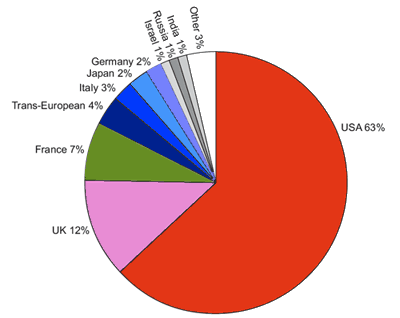 12, in which New York druggies…
12, in which New York druggies…
In the wake of the Sundance festival, where (most important matter) sales were said to be up, Manohla Dargis of the New York Times weighed in with what has become the perennial Independent Film is Dying/Being Reborn item. The usual villains, the usual saviors – Hollywood of course wears the black hat, and new technology wears the white, and those eager youthful new filmmakers of the season are Twittering their way to new frontiers, etc. Along the way the usual mainstream tactic of calling tired formulaic old tricks “new” and “independent” gets flogged once again. See Manohla’s article. I promptly sent off a missive to the Letters to Editors Dept, and if they are generous they’ll print it in the culture ghetto section, maybe next Sunday. Or maybe not. Here’s what I wrote:
Dear people
In her article Talking About a Revolution (Jan 29) writes “The frisson of the live concert experience partly explains why some independent filmmakers now show up at some of their screenings in person.” Very partly: in-person presentation has been SOP in the independent/avant garde/experimental/etc. world since I began in 1964. I myself did such a screening not so many years ago at the Nuart. Not for the “frisson” of anything, but because for so-called “independent” cinema it is essentially the only way to get a showing and an audience, and $200-$500. Plain and simple. Slapping new names on the same old thing doesn’t make it new. Through my career I have experienced the same basic tap dance of expectations with each new technology: videopacks back in the early 70’s, VHS, cable, satellite broadcast – each entered with the promise to revolutionize the media, and we got instead Blockbuster Video, the wrestling channel, and unless one made a basically conventional narrative film of its time (yes, Blair Witch too), you still had to show up at the few in-person sites available to make your $200. And you still do.
Yes, the net is making a difference: now you can download Hollywood or about any film you might desire, including the wildest weirdest porniest you want, and pay nothing for it. I sell DVDs via my website, though the same ones show up on BitTorrent as soon as I do. So yes, it is changing things, but not necessarily for the better. Amidst the avalanche of DIY film-video making now available most of it is easy conventional stuff like the mumble-core crowd, and most of it is simply bad. Its independence is purely financial, not psychological or artistic: there is, sorry, very little genuine creativity or independence going on in it. This has more to do with the stultifying cultural envelope which we live in, as shown in our politics and the idea that a concert with beat-to-death modes of rock and roll offers “frisson.”
We’ll probably exit this cultural cul-de-sac the same time the US Congress behaves like adults. So I’d guess we have another 30 or 40 years given the current concept of “adulthood” that starts when you move out of your parents house (because you don’t have a job, have $40,000 or more in student loan debt, and are psychologically dependent anyway) sometime around when they drop dead.
Sincerely
Jon Jost
On reading the various newspaper and trade items on the festival the talk is primarily about money, wheeling and dealing, distribution chances, etc.; secondarily we get thumbnail sketches about the story, the theatrics. We get nothing about the art, probably because in most cases there isn’t any. Rather, formulaic cookie-cutter filmmaking that makes no challenge to the viewer outside of evading the boredom of the same old thing the same old way. I’m rather certain that any such films that would challenge the viewer’s complacency would get kicked around rather badly.
Unfortunately this story is replicated in most festivals, which likewise play it safe, sticking to tried and true conventional films, albeit often ones with a little kinkiness about sex, drugs, exotic murders, gender fun and games, and the usual riot of PC acceptables. However straying from fixed narrative conventions is a no-no, as is something that is visually or temporally very far outside the TV base norm. An over-head shot a la the Coen brothers or Jarmusch is about as risky as allowed – oh so arty! To say a dismal range of stuff well within the norms of Hollywood but made with other money (sometimes).
Likewise this same reality is replicated in our politics where those few who dare to venture outside the rote words and rituals are promptly exiled (or worse). Can you imagine a candidate refusing to wear a stupid flag lapel, not standing in front of an array of American flags, not genuflecting to the mantra that America’s soldiers abroad are our “best,” not asserting we’re number one in myriad aspects? No, you can’t, because it would never be allowed. The confines of permissible discourse in America is as limited on screen as it is on the stump. Small wonder we’re in such a bad place.
It would be nice to think some day we’ll outgrow this, be it in our cinemas or in Congress, but I wouldn’t make any bets on it happening anytime soon.













































